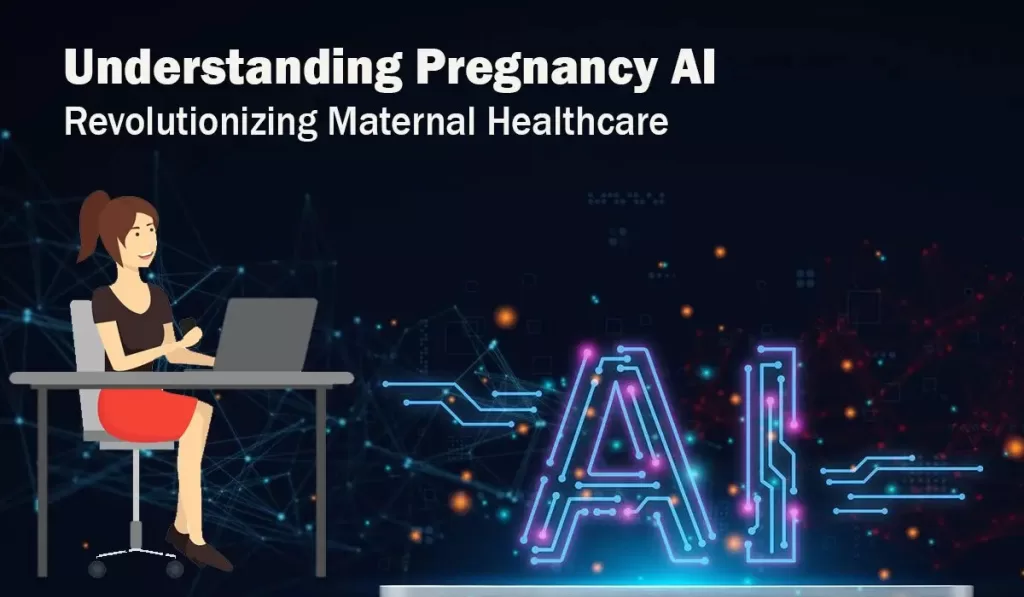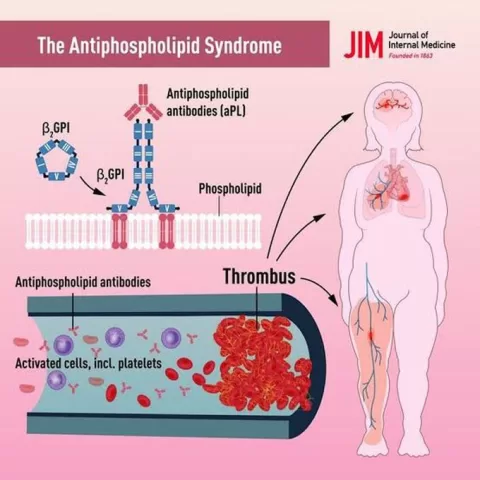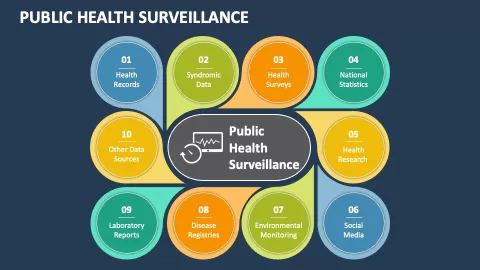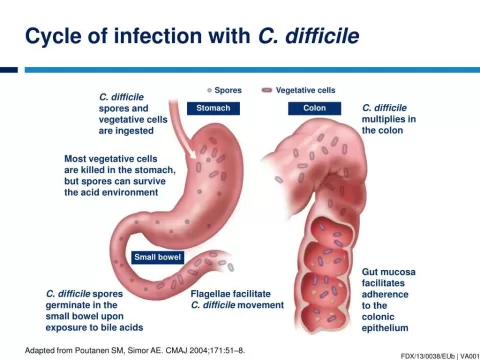AI-based pregnancy analysis is revolutionizing maternal healthcare by uncovering critical warning signs that can lead to stillbirth and newborn complications. By harnessing advanced algorithms, researchers are able to identify unexpected risk factors associated with adverse pregnancy outcomes, leading to more accurate pregnancy risk assessment. This innovative approach not only enhances the understanding of complex interactions between maternal and fetal health but also paves the way for personalized pregnancy care tailored to individual needs. With a focus on explainable AI in healthcare, this technology offers transparency in risk estimations, enabling healthcare providers to make informed decisions based on comprehensive data analysis. As studies reveal staggering variations in risk among pregnancies, the integration of AI in obstetrics promises to significantly improve outcomes for both mothers and their newborns.
The emergence of intelligent systems in gestational health monitoring is transforming how we perceive and manage pregnancy risks. Utilizing machine learning techniques, these advanced tools analyze vast datasets to identify patterns that traditional assessments may overlook. By providing insights into potential complications and enhancing stillbirth prevention strategies, these technologies are setting new standards for prenatal care. This next-generation approach not only facilitates a deeper understanding of maternal-fetal interactions but also ensures that care is customized, addressing the unique circumstances of each pregnancy. As we delve into personalized care solutions, the role of artificial intelligence in predicting and mitigating newborn complications becomes increasingly vital.
Understanding AI-Based Pregnancy Analysis
AI-based pregnancy analysis represents a groundbreaking advancement in the field of obstetrics, allowing healthcare professionals to identify risk factors associated with stillbirth and newborn complications more effectively. By leveraging vast datasets, these AI models can uncover complex patterns and relationships that traditional methods might overlook. This technology not only enhances the accuracy of pregnancy risk assessments but also contributes to the development of personalized pregnancy care strategies tailored to individual patients’ needs.
In a study involving nearly 10,000 pregnancies, researchers discovered surprising correlations between various maternal and fetal factors that could significantly influence pregnancy outcomes. For instance, the presence of pre-existing conditions such as diabetes was found to alter the risk profile for female fetuses, a detail that could inform clinical decisions. This level of insight underscores the potential of AI in refining our understanding of pregnancy health and mitigating risks associated with adverse outcomes.
The Role of Explainable AI in Healthcare
Explainable AI (XAI) plays a crucial role in healthcare by providing transparency in risk assessments and treatment recommendations. Unlike traditional AI models that often operate as ‘black boxes,’ XAI offers insights into how decisions are made, which variables influence outcomes, and the degree of their impact. This transparency is vital for clinicians, as it allows them to understand and trust the AI’s recommendations, ultimately leading to better patient care.
By utilizing explainable AI in pregnancy analysis, healthcare providers can make more informed decisions based on a comprehensive understanding of the risks involved. This technology not only aids in identifying high-risk pregnancies but also enhances the clinician’s ability to communicate risks to patients effectively. As a result, patients can engage in discussions about their care options, leading to a more collaborative and personalized approach to managing their pregnancies.
Revolutionizing Risk Assessment in Pregnancy
The conventional methods of pregnancy risk assessment often rely on a limited set of factors, which may not capture the complexities of each individual case. AI-based models, however, can analyze a plethora of variables, including maternal health history, fetal characteristics, and environmental factors, to generate a more nuanced risk profile. This comprehensive approach allows obstetricians to tailor their monitoring and intervention strategies based on specific risk levels, significantly enhancing care quality.
For instance, the AI model developed by researchers at the University of Utah revealed that some fetuses classified under low-weight categories might not be at an increased risk for negative outcomes, contrary to standard clinical guidelines. This insight empowers clinicians to allocate resources more efficiently, reducing unnecessary interventions and emotional burdens for patients while ensuring that those truly at risk receive the attention they need.
Identifying Unexpected Risks in Pregnancy
One of the most striking findings from the AI-based pregnancy analysis was the identification of unexpected risk factors that could lead to adverse outcomes. For example, while it is commonly understood that female fetuses generally face lower risks, the analysis revealed that this could change dramatically in the presence of maternal health conditions such as pre-existing diabetes. Such insights challenge existing clinical assumptions and highlight the need for continuous learning and adaptation in pregnancy care practices.
These unexpected correlations serve as a reminder that pregnancy risk assessment is not merely about categorizing patients based on established guidelines but rather about understanding the unique interplay of individual health factors. By incorporating AI-driven insights, healthcare providers can enhance their ability to detect subtle risk indicators that may have previously gone unnoticed, ultimately leading to improved outcomes for both mothers and infants.
Personalized Pregnancy Care Through AI Insights
The push towards personalized pregnancy care is becoming increasingly feasible with the integration of AI-based analysis into clinical practice. By harnessing data from diverse sources, such as maternal health records and social support factors, AI tools can generate tailored care plans that address the specific needs of each patient. This personalized approach not only improves the likelihood of positive outcomes but also empowers women to take an active role in their healthcare journey.
Furthermore, personalized care facilitated by AI can enhance patient satisfaction and trust in the healthcare system. As women receive care that is customized to their unique risk profiles, they are more likely to engage in preventive measures and adhere to medical recommendations. This synergy between technology and personalized care represents a significant shift in how pregnancy is managed, ultimately fostering healthier pregnancies and reducing the incidence of complications.
Enhancing Stillbirth Prevention Strategies
Stillbirth prevention remains a critical area of focus in maternal and child health, and AI-based analysis offers promising new avenues for enhancing prevention strategies. By identifying specific risk factors associated with stillbirth, healthcare providers can implement targeted interventions that address these risks more effectively. The insights generated from large datasets enable clinicians to prioritize resources and interventions where they are most needed.
Moreover, the ability to quantify risks associated with stillbirth based on individual characteristics allows for more nuanced conversations between healthcare providers and expectant parents. By discussing potential risk factors openly, families can make informed decisions regarding their prenatal care, leading to proactive measures that could significantly reduce the likelihood of stillbirth. With ongoing research and advancements in AI, the future of stillbirth prevention looks increasingly hopeful.
Addressing Newborn Complications with AI
Newborn complications can arise from a variety of prenatal factors, and AI-based pregnancy analysis provides critical insights into these risks. By examining complex interactions between maternal health, fetal development, and environmental influences, AI can help predict and mitigate potential complications before they arise. This proactive approach is essential for ensuring better health outcomes for newborns.
For instance, the identification of high-risk scenarios for newborn complications allows healthcare providers to develop specific monitoring plans tailored to each pregnancy. This targeted approach helps ensure that at-risk infants receive the necessary interventions promptly, reducing the chances of complications that could adversely affect their health. The integration of AI in this context underscores the importance of data-driven decision-making in improving neonatal care.
The Future of AI in Maternal Healthcare
As research in AI technology continues to evolve, its application in maternal healthcare promises to transform the way pregnancy risks are assessed and managed. The potential for AI to analyze vast amounts of data quickly and accurately can lead to more effective identification of at-risk pregnancies and the development of personalized care plans. This shift towards data-driven healthcare not only aims to enhance clinical outcomes but also to foster a more patient-centered approach.
Moreover, ongoing advancements in explainable AI will further bridge the gap between technology and clinical practice, enabling healthcare providers to make informed decisions based on transparent data analyses. As more healthcare institutions adopt these technologies, the future of maternal healthcare is likely to become increasingly sophisticated, with AI playing a pivotal role in ensuring safe pregnancies and healthy newborns.
Collaborative Efforts in AI-Driven Healthcare Research
The collaborative nature of research in AI-driven healthcare, as exemplified by the University of Utah’s interdisciplinary team, is crucial for advancing our understanding of pregnancy health. By bringing together experts from various fields such as obstetrics, genetics, and informatics, these research initiatives can leverage diverse perspectives to enhance the robustness of AI models. Such collaborations are essential for addressing the multifaceted challenges of maternal health.
Additionally, the establishment of initiatives like the One-U Responsible Artificial Intelligence Initiative underscores the commitment to utilizing AI for societal benefit. By focusing on real-world applications in healthcare, these projects aim to translate research findings into practical tools that can improve patient outcomes. The future of AI in maternal healthcare relies heavily on such collaborative efforts, ensuring that advancements are grounded in clinical relevance and ethical considerations.
Funding and Future Research Directions in AI for Pregnancy Care
Securing funding for AI research in pregnancy care is vital for sustaining ongoing studies and developing innovative tools that can improve maternal and fetal health outcomes. Initiatives like the One-U Data Science Hub Seed Grant Program highlight the importance of financial support in fostering groundbreaking research that addresses pressing healthcare challenges. As funding continues to flow into this area, researchers can explore new methodologies and technologies that push the boundaries of what is possible in pregnancy care.
Future research directions may focus on validating AI models in diverse populations to ensure their effectiveness across various demographics. Additionally, exploring the integration of AI with other emerging technologies, such as wearable health devices, could offer real-time monitoring capabilities that enhance personalized pregnancy care. Ultimately, the continued investment in AI research will be instrumental in shaping the future landscape of maternal healthcare, leading to safer pregnancies and healthier births.
Frequently Asked Questions
What is AI-based pregnancy analysis and how does it relate to stillbirth prevention?
AI-based pregnancy analysis utilizes artificial intelligence to evaluate vast datasets of pregnancy-related information, identifying complex patterns and risk factors associated with stillbirth prevention. By uncovering unexpected combinations of factors, such as maternal health and fetal characteristics, AI helps healthcare providers assess risks more accurately and tailor personalized pregnancy care.
How can AI-based pregnancy analysis help reduce newborn complications?
AI-based pregnancy analysis aids in reducing newborn complications by providing detailed risk assessments based on various maternal and fetal factors. Through the identification of unique risk combinations, healthcare professionals can implement targeted monitoring and interventions to enhance pregnancy outcomes, thereby minimizing the likelihood of complications at birth.
What role does explainable AI play in pregnancy risk assessment?
Explainable AI plays a crucial role in pregnancy risk assessment by offering transparency in how risk estimations are derived. This technology not only provides a risk score based on specific factors but also elucidates which variables contribute to that score, empowering healthcare providers to make informed and equitable decisions in personalized pregnancy care.
How does AI-based pregnancy analysis improve personalized pregnancy care?
AI-based pregnancy analysis improves personalized pregnancy care by enabling healthcare providers to tailor interventions based on detailed risk profiles for each patient. By leveraging AI to assess a multitude of factors, clinicians can develop individualized care plans that consider each mother’s unique circumstances, ultimately enhancing maternal and fetal health outcomes.
What are the benefits of using AI for stillbirth prevention in pregnancy?
The benefits of using AI for stillbirth prevention include enhanced risk detection, the ability to identify previously unrecognized risk factors, and improved decision-making through data-driven insights. By analyzing large datasets, AI models can predict high-risk scenarios and help healthcare providers implement proactive measures to safeguard both maternal and fetal health.
Can AI-based pregnancy analysis identify rare pregnancy scenarios and their associated risks?
Yes, AI-based pregnancy analysis can identify rare pregnancy scenarios and their associated risks by evaluating unique combinations of maternal and fetal characteristics. This capability allows for precise risk assessments in atypical cases, enabling healthcare providers to make more informed decisions regarding monitoring and treatment during pregnancy.
What advancements does explainable AI bring to maternal healthcare?
Explainable AI brings significant advancements to maternal healthcare by providing clear insights into the risk assessment process. It allows healthcare professionals to understand the rationale behind AI-generated recommendations, reducing reliance on subjective judgment and enhancing the overall quality of care for pregnant individuals.
How does AI-based pregnancy analysis contribute to better outcomes for low-weight fetuses?
AI-based pregnancy analysis contributes to better outcomes for low-weight fetuses by identifying varying levels of risk within this group. By analyzing factors such as fetal sex and maternal health conditions, AI can help clinicians determine appropriate monitoring and intervention strategies, ultimately improving the chances of healthy deliveries.
| Key Point | Details |
|---|---|
| AI-based Pregnancy Analysis | Uncovers warning signs for stillbirth and newborn complications. |
| Research Context | Analysis of nearly 10,000 pregnancies revealed new risk factor combinations. |
| Unexpected Findings | Female fetuses with mothers having pre-existing diabetes face higher risks than males. |
| Risk Variation | Risk for fetuses in the bottom 10% for weight can vary drastically, influencing monitoring needs. |
| Explainable AI | Provides transparency in risk estimation, helping to inform clinical decisions. |
| Clinical Implications | Potential for personalized care through accurate risk assessments using AI. |
Summary
AI-based pregnancy analysis represents a groundbreaking advancement in maternal care, revealing critical insights into the risks associated with pregnancy outcomes. This innovative approach utilizes artificial intelligence to identify previously unrecognized combinations of risk factors, enabling personalized healthcare strategies for expecting mothers. As research continues to validate these findings, AI-based pregnancy analysis could significantly enhance risk assessment and improve outcomes for both mothers and infants.
The content provided on this blog (e.g., symptom descriptions, health tips, or general advice) is for informational purposes only and is not a substitute for professional medical advice, diagnosis, or treatment. Always seek the guidance of your physician or other qualified healthcare provider with any questions you may have regarding a medical condition. Never disregard professional medical advice or delay seeking it because of something you have read on this website. If you believe you may have a medical emergency, call your doctor or emergency services immediately. Reliance on any information provided by this blog is solely at your own risk.







